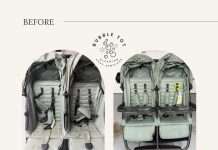Editor’s Note: This is the first in a series on toxic masculinity. If you have questions or advice please comment below.
We’ve all heard the phrase “toxic masculinity.” Most of us have experienced some form of it, or maybe even participated in it. Growing up, I experienced it by way of my father’s machismo. There were also male teachers who assumed I wouldn’t be able to grasp math, and pastors who policed my wardrobe, imploring that short skirts or spaghetti straps caused my male counterparts all sorts of preventable sin.
These are examples of what toxic masculinity might look like, but what does it actually do to men—to society? Moreover, how is it caused and how can I prevent it? As a mother raising two boys, I simply don’t have the luxury of ignoring the issue. The hard truth is that my understanding of men in general plays a role in the way I parent my boys. Gone unchecked, I am in danger of perpetuating the cycle of toxic masculinity that I’ve come to understand as a cisgender women and mother. I refuse to pretend that I can somehow be above the concept by will alone. The work is in taking toxic masculinity apart as a concept.
Why Must We Address Toxic Masculinity?
The American Psychological Association (APA) issued guidelines for psychological professionals to address the needs of men by first calling out toxic masculinity. They’ve addressed the issue because it is so dangerous. The fact is, men who subscribe to it have higher rates of suicide, and men are more likely than women to commit murder or become afflicted with substance abuse. These facts should be a huge concern for all of us, not just mothers raising men. Because of those factors—and in order to solve society’s biggest hurdles—addressing toxic masculinity is paramount.
What Does Toxic Masculinity Look Like?
I pointed out a couple of examples of how it presents itself: machismo and religious idealism (which is highly gendered). What are some others? In my mind, they encompass every stereotype understood about strength, power, or anti-femininity (in direct contrast with feminine stereotypes) — a strong man does “x, y, z” and does not do “a, b, c.” A strong man does not help a weak person. What do those stereotypes do to men? How do they play out in society?
The idea that a strong man is anti-weak in particular creates an inner dialogue for men where they believe they should be able to handle (or be silent about) any emotionally complex issue. The idea that men don’t cry particularly ignores the very natural, physical reaction to sadness. In this way, toxic masculinity works to ignore innate human aspects of our everyday life, and normalizes that effort. A man who doesn’t cry—who works in his own best interest, who highlights his vices over healthy habits—has become the masculinity trope. And that, my friends, is toxic AF.
How Do We Prevent Toxic Masculinity, Especially As We Raise Boys?
This is one blog post from a concerned boy-mom. I couldn’t possibly begin to answer this question, much less the following one: how can I prevent my boys from being indoctrinated into a society that seems dead set on filling their heads with gender binaries that become the base ingredients for machismo.
The answer to that is this—I don’t know. I don’t know how to protect my boys from toxic masculinity outside of my own home. But I plan to address some of my biggest concerns in the next few blog posts. Stay tuned!




















As the father of three middle aged men, I have some ideas. Half the battle is modeling a healthy balance of power between you and their father. This requires an explicit and continuing conversation with their father.
The next big piece is to talk to your boys in a manner that suggests problem solving rather than criticism.
Maintaining that posture as they become middle schoolers and were fighting to create an identity against us was one of the hardest things in raising our boys.
This is great advice! Thank you so much. My five year old and I have been discussing gender norms, i.e., he is confused by a boy who wears long hair at school. While the conversation seems small now, I know that it is the framework of how he’ll view society at large. The connection you’ve made with mom-and-dad-dynamics is great. Luckily, my husband and I are on the same team, and I consider that a huge advantage. Stay tuned for more articles as I learn in real time. Best!